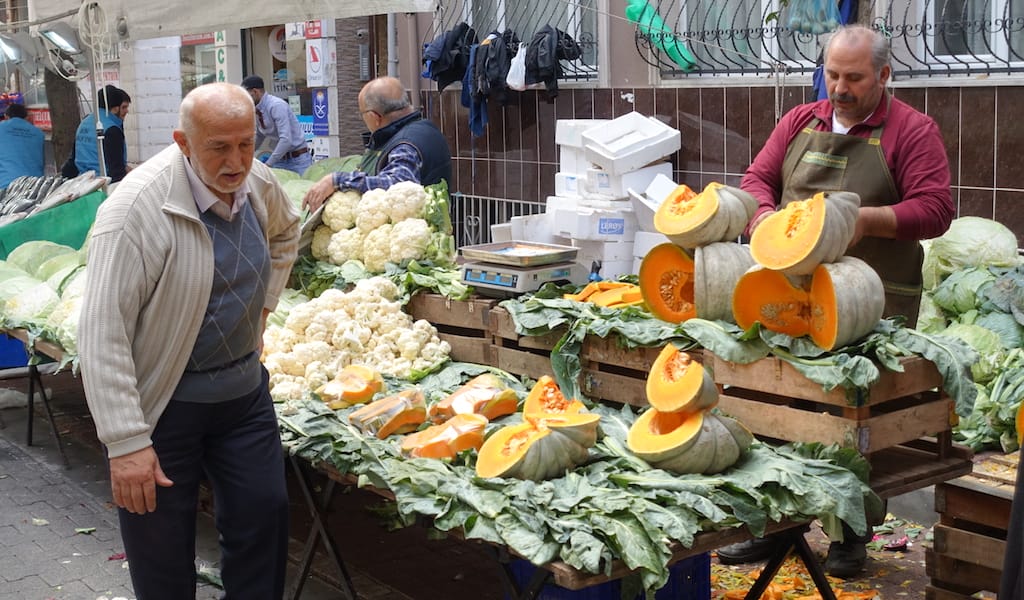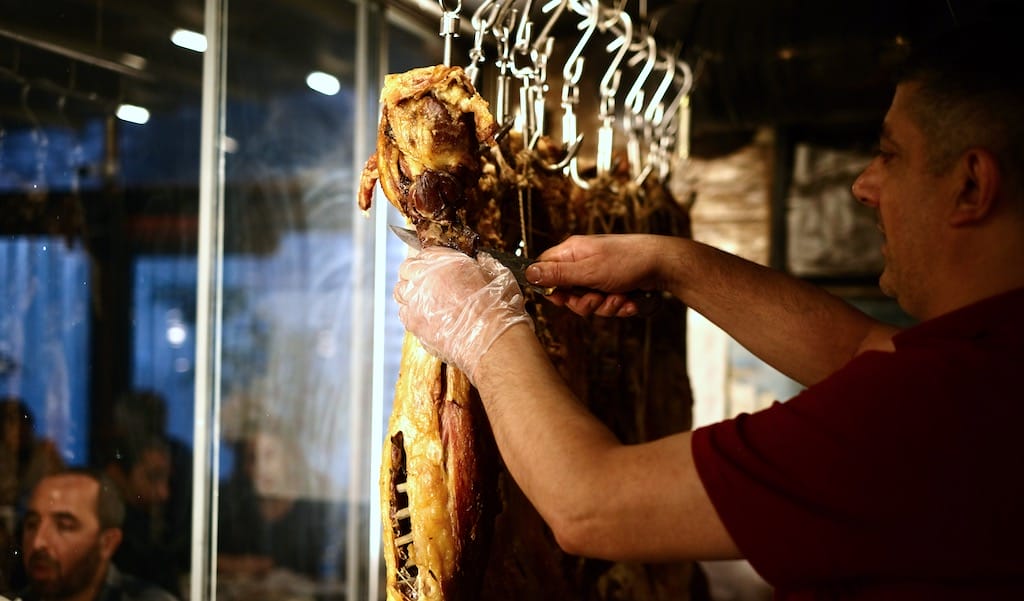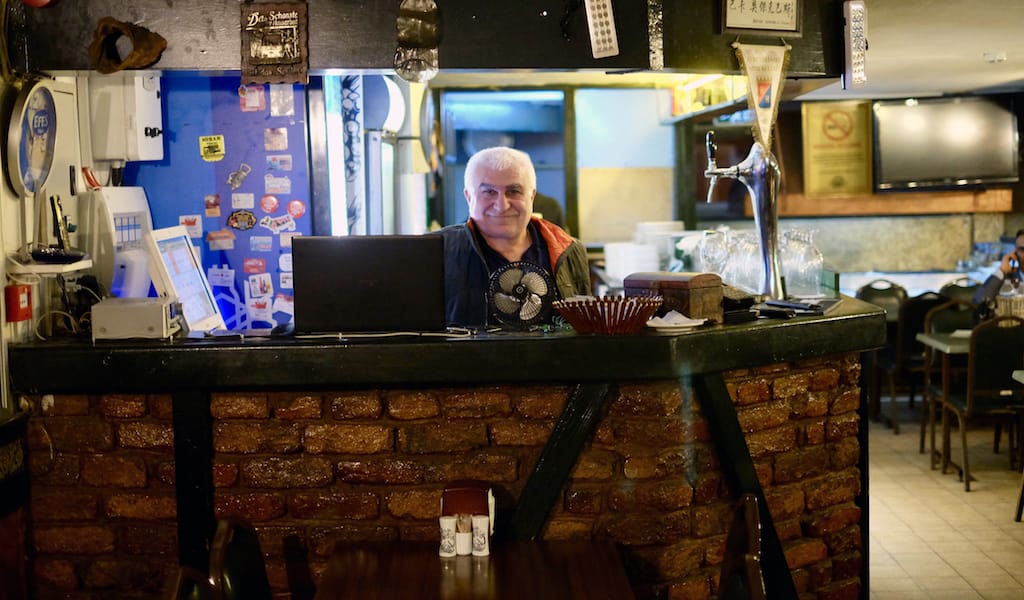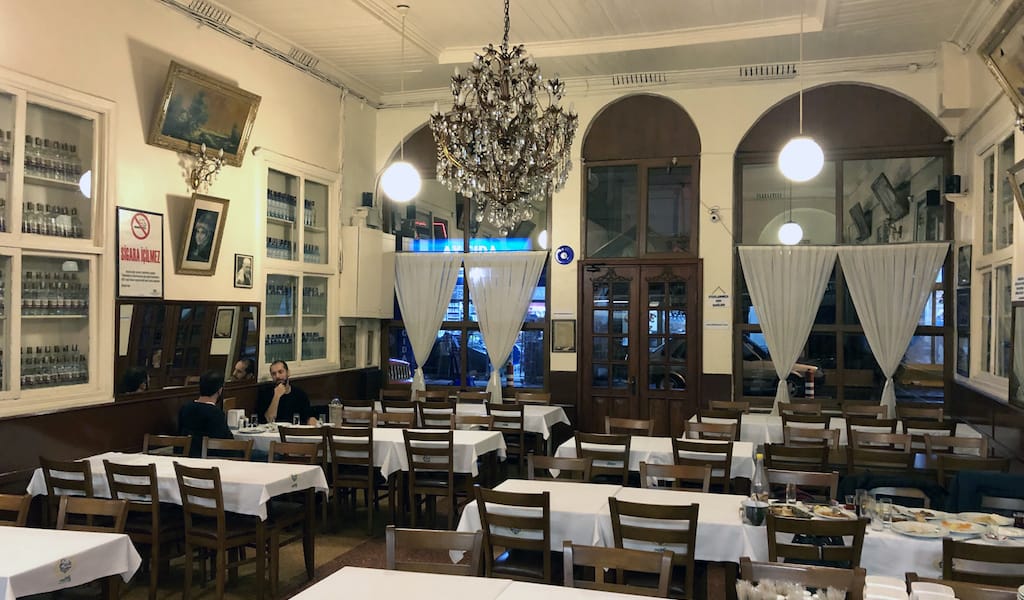Despite the bitter January cold, surging cases of Omicron and roaring inflation, Istanbul seemed its usual vibrant self on a recent Friday night: Our first choice restaurant was fully booked, even in its expanded space, and the new neighborhood ocakbaşı where we ended up bustled pleasantly, with every seat taken at the large counter encircling the grill.
But appearances can be deceiving.
“Meyhanes are still full, but people are eating less, drinking less; they can’t afford to consume like they did before,” says chef Aliye Gündüzalp, one of the owners of Müşterek meyhane in Beyoğlu.
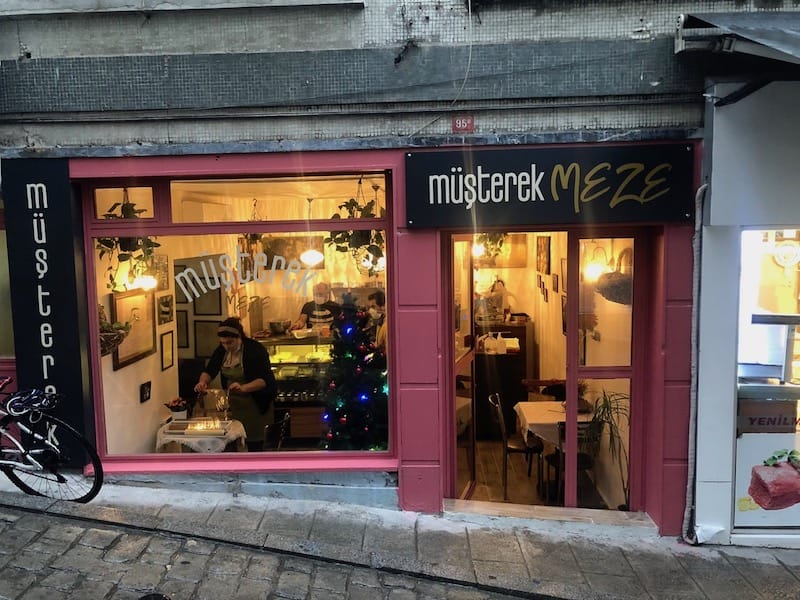
The Turkish lira lost more than 40% of its value against the dollar last year and annual inflation in Turkey has soared, hitting 36% this month, the highest level in almost two decades. Independent researchers say the real rate has vastly exceeded that official figure, estimating annual inflation at nearly 83% as of December.
Turkey’s economic crisis hasn’t stopped Istanbul’s resilient residents from wanting to eat, drink and socialize, but it is taking a toll on their spending ability – and endangering the future of small businesses that were already hard-hit by the pandemic.
When Covid forced the closure of the city’s restaurants, cafes and bars, Müşterek’s owners opened up a takeaway meze shop in Kurtuluş, which Aliye runs. Business was good at first, she says, but rising costs are posing a new challenge.
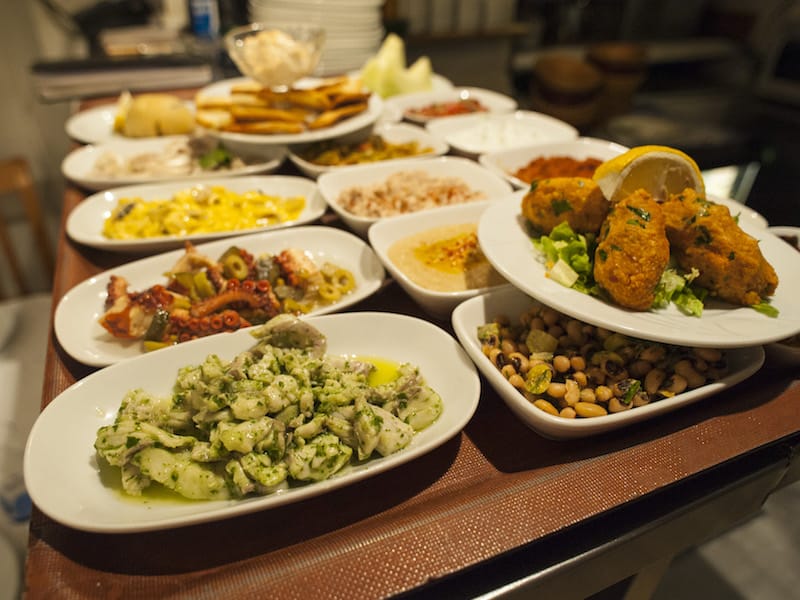
“Prices have gotten so high for some ingredients that we’re not making meze with them anymore,” Aliye says, explaining that the cost they would have to charge would be prohibitive for their customers. So, shrimp are off the table for now. So is the popular meze köz patlıcan (roasted eggplant). Müşterek has even reduced the number of yogurt-based dishes it’s making after the dietary staple went up “an unbelievable amount” due to soaring milk prices.
Hardly any type of food has escaped the impacts of the floundering economy. The cost of chickpeas and tahini – the key ingredients in his falafel and humus – have tripled in the past six months, according to Ahmed Abu Rub, the owner of Falfool Vegan House in Kadıköy. Flour prices have doubled, says Pınar Duru, the owner of 212 Bakehouse in Cihangir.
“In Turkey, it’s a tradition that when you have nothing left at home, you mix flour with water and make a lavaş,” Pınar says. “But even basic flour has become so expensive. I’m afraid not just for my shop but for the whole country – what are people going to eat?”
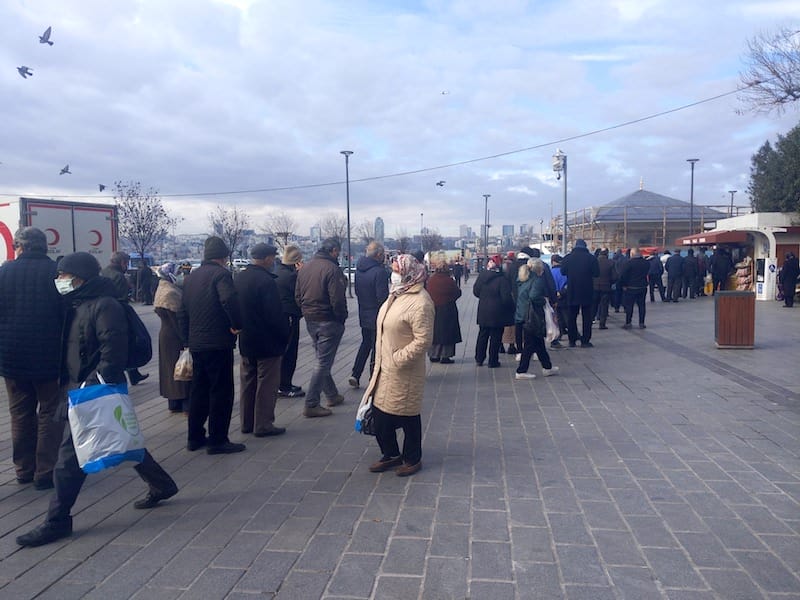
Turkey’s agricultural sector has become heavily reliant in recent decades on imported inputs – feed, fuel, fertilizer, machinery, even seeds. As the lira tumbled relative to the dollar and the euro, the cost of these inputs has weighed heavier and heavier on farmers.
“It’s becoming impossible to produce in the face of these increasing costs; I’m thinking of downsizing,” says Ayhan Öztürk, whose three-hectare farm Gözdenin Çiftliği is located in Silivri, on the western outskirts of Istanbul. Fuel prices have gone up by 82% in the past year, he says, while the cost of fertilizer has seen a hike of as much as 90%.
Turkey’s economic crisis hasn’t stopped Istanbul’s resilient residents from wanting to eat, drink and socialize, but it is taking a toll on their spending ability – and endangering the future of small businesses that were already hard-hit by the pandemic.
Dependency on imports is hitting the food and beverage sector in ways both expected and not so obvious. Since Turkey is not a producer of coffee beans, it’s not a huge surprise that the cost of coffee has skyrocketed in Turkish lira terms. “Coffee prices have more than doubled within the past two and a half months,” says İlker Arı, owner of Tribu café in Kadıköy. But paper in Turkey is mostly imported too, and that means the costs of the cups Tribu uses for its takeaway flat whites have doubled as well, from 50 kuruş to 1 lira each – when supply-chain disruptions even allow İlker to get his hands on any. And if his espresso machines need servicing, the spare parts are priced in euros.
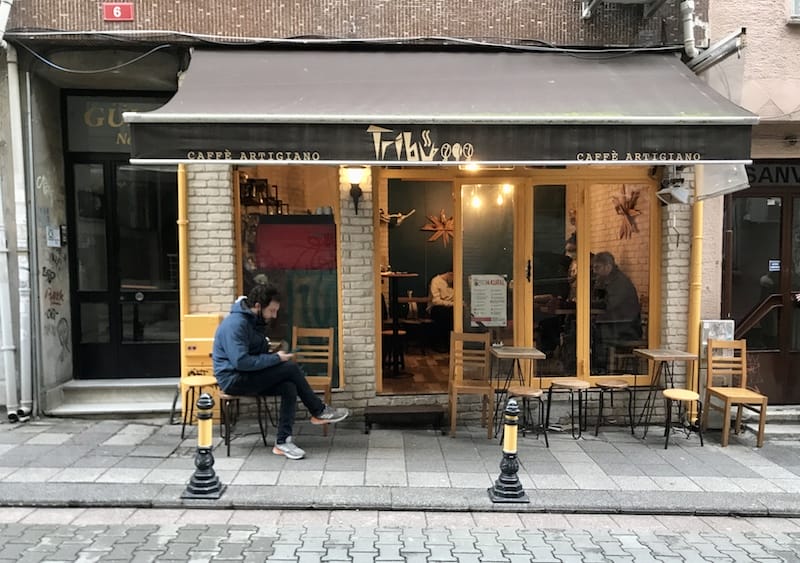
“My business is based on foreign imports but I’m trying to make money in lira while the purchasing power of Turkish society is dropping day by day,” he says. “Drinking coffee in a café has become a real luxury.”
Turkey boosted the national minimum wage by 50% as of January 1, but this increase affects less than a quarter of the workforce and puts an additional burden on small businesses with narrow profit margins. Electricity costs have also soared, with commercial rates going up 125% in the latest increase.
“You never make huge profits with a shop this size, but if things keep going the way they are, my staff will make more money than I do,” İlker says wryly. With his short dreadlocks and fleece-lined flannel jacket, it’s hard to picture him in his former job in corporate sales. “I never regretted my decision to leave that world until a few months ago,” he says. “This economic situation is not like a heart attack or an aneurysm; it’s like a cancer that kills your business at a slow pace.”
Though all the people we interviewed have raised prices at least somewhat in response to the increased costs of doing business, they also expressed reluctance to do so, concerned about their customers’ economic situation and fearful of further drops in sales.
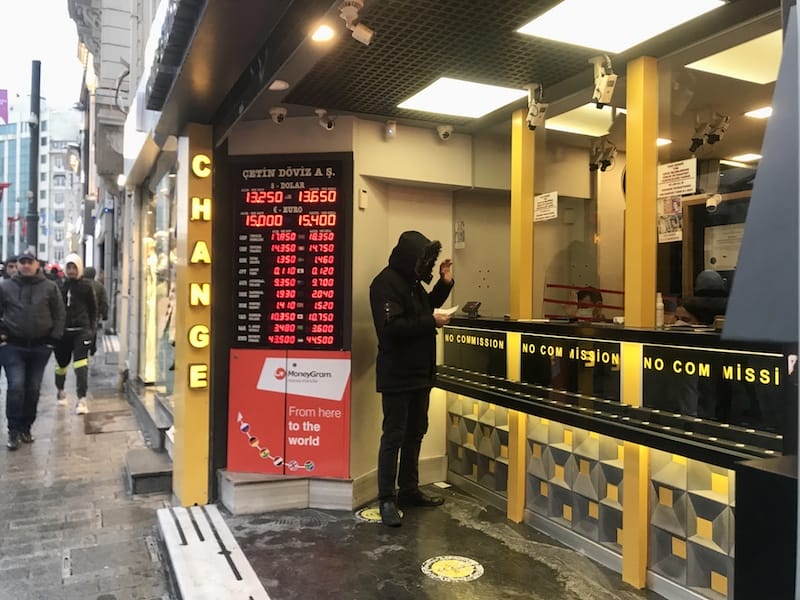
“I can’t raise my prices very much. My shop is small, and has no inside seating area, so I can only compete on food quality and prices,” says Ahmed. Falfool started offering complete meals that are a better value than sandwiches, and using independent couriers who take a smaller cut than the big delivery companies. Other small business owners are also trying come up with innovative ways to boost revenues or lower costs.
The tiny dessert case at Tribu now usually has only two selections of sweets, down from four, to minimize food waste, İlker says. He wanted to start roasting his own coffee, but the limited supply of beans has made it difficult to find a wholesaler to buy from. Pınar has started selling a friend’s jams in her shop and says she is thinking about baking smaller loaves of her signature sourdough breads so she won’t have to charge so much, and perhaps offering day-old bread at a lower price.
Aliye is trying to make more meze from seasonal vegetables and herbs, which are cheaper than out-of-season staples like tomatoes, eggplants and cucumbers. It’s one way in which economic resilience can potentially dovetail with more environmentally friendly – and, arguably, tastier – ways of eating.
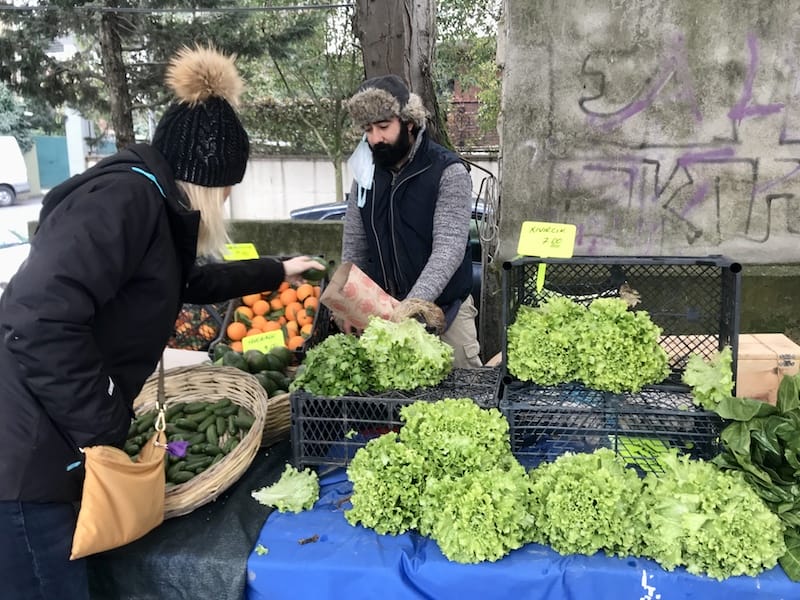
Similarly, Yusuf Kahveci of Akasya Tarım in Riva, near Istanbul’s eastern Black Sea coast, says his 1.2-hectare family farm hasn’t been hurt that much yet by inflation because they use local seeds and no chemicals or fertilizers. But the future is still up in the air.
“If we need machinery repair, that situation would change, of course,” he says. And depending on the amount they need to pay workers during the busier spring planting period, “next season could be different.”
Producers’ groups are already warning that prices on milk and meat may increase even further in the spring when Turkey’s tourism season starts, driving up demand. It’s just one sign that the days of uncertainty and price volatility have not yet been left behind.
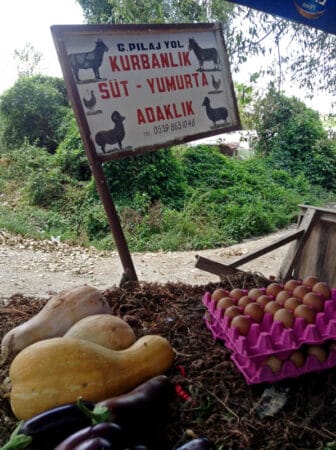
Late last year, when the exchange rate was fluctuating at an especially head-spinning rate, Pınar says she was chatting with the grocery store workers who were updating the price tags on the eggs she was buying. “They said, ‘Abla, buy now. You don’t know what the prices will be in the afternoon!’” she recalls.
“I used to be able to remember the unit price of everything, now I can’t even keep up,” Pınar says. “I have to recalculate the value of my bread each time I buy flour. Recently, there were some days when I told my customers, ‘Just take your bread and come back later to pay, I don’t know what price it should be.’”
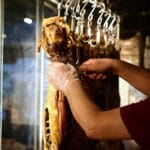 February 2, 2022 Meat Palaces
February 2, 2022 Meat Palaces
Ask anyone from the Eastern Turkish city of Bitlis where büryan kebabı comes from, and […] Posted in Istanbul April 19, 2019 Bakar Ocakbaşı
April 19, 2019 Bakar Ocakbaşı
Down the street from Istanbul’s upmarket Etiler neighborhood and above the even-glitzier […] Posted in Istanbul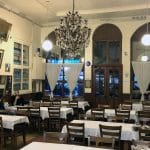 February 6, 2019 Safa Meyhanesi
February 6, 2019 Safa Meyhanesi
The main street of Istanbul’s Yedikule neighborhood is steeped in history: it is dotted […] Posted in Istanbul
Published on January 27, 2022
Related stories
February 2, 2022
Istanbul | By Erin O’Brien
IstanbulAsk anyone from the Eastern Turkish city of Bitlis where büryan kebabı comes from, and they’ll proudly tell you that the slow-cooked meat dish hails from none other than their hometown, near Lake Van. Pose the same question to folks from Siirt, just 100 km south, and they’ll insist anyone making it from a city…
April 19, 2019
IstanbulDown the street from Istanbul’s upmarket Etiler neighborhood and above the even-glitzier shoreside quarter of Bebek lies Hisarüstü, a ragtag maze of unplanned urban growth that happens to be adjacent to the newer campus of Bogaziçi University, Turkey’s most prestigious college. Once upon a time the area was home to a pig farm, but Hisarüstü…
February 6, 2019
IstanbulThe main street of Istanbul’s Yedikule neighborhood is steeped in history: it is dotted with exquisite buildings built a century ago and passes through a gate that is part of the 4th-century Theodosian walls, parallel to which are a series of historic urban gardens that have been farmed for hundreds of years. Once a well-to-do…







































